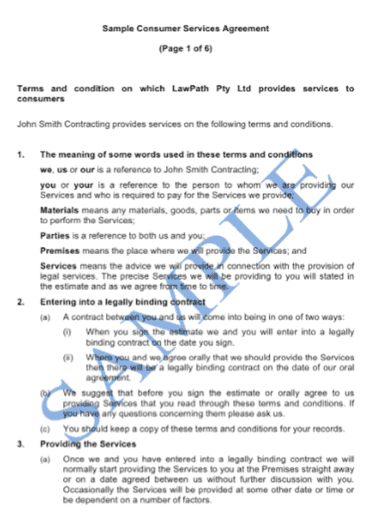Sydney-based solicitor, working at Watkins Tapsell Solicitors and Barristers. Formerly Legal Intern at Lawpath.
Enforceability issues are something to be avoided at all costs. An NDA (otherwise known as a confidentiality agreement) is a common contract used to protect confidential information. Enforcing an NDA is the whole reason people enter into them. However, if your NDA isn’t up to scratch or certain things are lacking, you might be leaving your confidential data exposed. Here are 5 things you need to be sure of so that your NDA is enforceable.
1. Make sure it’s Signed
It is a general principle of contract law that in order for something to be binding you must sign it. If a party fails to sign the NDA, how can anyone know if they agreed to it? Both parties should sign the agreement to show that they both consent to what is in the NDA.
2. Leave no room for ambiguity
Ambiguity is a key way to undermine a contract when a party claims the other has breached it. The most common way people fail in this area is through not defining clearly enough what is confidential. The easiest way to safeguard against this is by utilising a definitions section in the NDA. You can always confirm with a contract lawyer that your definitions are explicit enough to be enforced.
3. Be aware of any potential jurisdictional issues
In your NDA you need to state which state(s) or country you expect to enforce your NDA. For example, you may have an NDA protecting confidential consumer data which you outsourced to another firm overseas. It may not be enough to state that the NDA applies in that country as well as your country as they may have additional requirements for NDA’s overseas.

Create Your NDA for Free
Create a LawPath account now to customise, print and download your Non-Disclosure Agreement in minutes.
4. Make sure the details of the parties are accurate
Sometimes it’s the things which are most obvious that we can tend to overlook. It is vital that you state the parties names in the NDA. This can be covered in more detail in the definitions section, for example, ‘The Firm’ refers to Astrix enterprises. Depending on who you intend the NDA to be for, you should adjust the document accordingly including who is a party to it.
5. Be weary of third party enforceability issues
An NDA might contain an exclusion clause or something similar. What this attempts to do is limit the liability of the party who might breach the NDA. A party could include a clause that says if a third party independently gains access to the confidential data then the original party isn’t responsible. Whether or not this holds up legally is a different matter. For example in America, you can generally only enforce NDAs against parties to the contract, not 3rd parties. Therefore, it is important to not only rely on an NDA to keep confidential data secure.
Unsure where to start? Contact a LawPath consultant on 1800 529 728 to learn more about customising legal documents and obtaining a fixed-fee quote from Australia’s largest Legal Marketplace.






